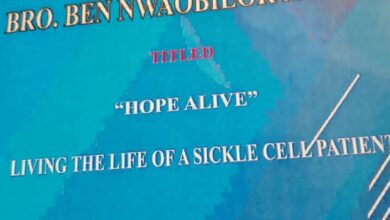
By Paul Ashibel
The gazetting of the National Tobacco Control Regulations in December 2019 signaled the beginning of a change in the design of cigarette packs and other tobacco products in Nigeria. Prior to the current graphic health warnings regime, cigarettes and tobacco packs carried a text warning that reads: The Federal Ministry of Health Warns that smokers are liable to die young.
This text warning had pitfalls as it failed to properly situate the statement as an admission of the damaging effects of tobacco products by tobacco companies.
Also, the old packs did not carry pictorial representations of the various cancers and the debilitating impact tobacco has on the human body.
According to the World Health Organisation (WHO), there is an incontrovertible body of evidence that graphic health warnings used alongside text warnings on tobacco packs encourage smokers to quit smoking, while discouraging tobacco uptake.
Article 11 of the World Health Organisation’s Framework Convention on Tobacco Control (WHO-FCTC) recommends that parties to the convention should ensure that product packaging and labeling do not promote tobacco products and should carry pictorial and text warnings which clearly describe the health dangers associated with tobacco use.
In the same vein, the National Tobacco Control Act 2015 and its Regulations of 2019 prescribe the use of graphic health warnings on tobacco packs. The law stipulates that after the initial period for the first batch of graphic health warnings, a new set of health warnings and messages shall be prescribed by the Federal Ministry of Health every two years to be used on the packaging or labeling of tobacco products. Accordingly, the first batch of graphic warnings, which were issued on June 23, 2021 are due for change by June 23, 2023.
Commendably, the Federal Competition and Consumer Protection Commission (FCCPC) has been active in the enforcement of the policy, partnering with the Nigeria Tobacco Control Alliance (NTCA), the agency has carried out enforcement exercises in the Federal Capital Territory, Lagos, Kano and Cross River states. Post-enforcement surveys showed a significant improvement in compliance with the policy.
Drafters of the National Tobacco Control Act and Regulations anticipated that the shock value of these graphic warnings would wane from long use, thus they provided for the rotation of the pictorial and text warnings as recorded in the first, second and third schedule of the 2019 Regulations.
Come June 23, 2023, the new set of graphic warnings ought to be rolled out. Questions on the readiness of the Federal Government to ensure that there is no lacuna in the implementation of this policy have become increasingly common within the tobacco control community.
The Federal Ministry of Health must at this time intensify engagement with the Standards Organisation of Nigeria (SON) and other relevant government agencies to ensure that this opportunity to strengthen tobacco control is not missed.
As public health advocates look forward to the implementation of the new set of warnings, there is no doubt that the tobacco industry in its characteristic style may attempt to delay or weaken the policy, and in response to this likelihood, advocates are committed to keenly watching the relevant agencies and the tobacco industry to ensure that this important policy is not derailed.
When steadfastly implemented, the new set of warnings carry a high shock value that can reiterate the health dangers associated with tobacco use and are also strong enough to cause tobacco addicts to begin to break the yoke of the self-harming addiction.
Ashibel, an official of the Nigeria Tobacco Control Alliance writes from Abuja










